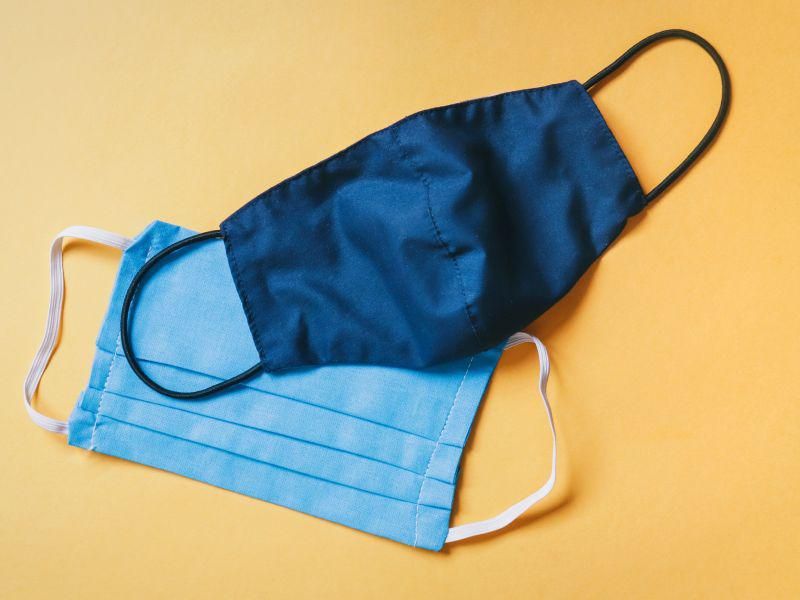FRIDAY, Jan. 29, 2021 (HealthDay News) — Could wearing two masks be better than one?
The emergence of new and more infectious COVID-19 variants has led health experts to consider “double masking” as a potential way to better protect yourself and those around you.
The U.S. Centers for Disease Control and Prevention is investigating whether donning a medical mask underneath a typical cloth mask would provide more protection, said Dr. John Brooks, chief medical officer for the CDC’s COVID-19 response.
“While this strategy may be an excellent solution, we haven’t seen data from experiments yet testing two masks together,” he said in a Friday media briefing from the Infectious Diseases Society of America (IDSA). “CDC scientists today are conducting experiments to evaluate the effectiveness of wearing two masks in this fashion, and we’ll share that information as soon as it’s available.”
The idea behind double masking is that the medical mask would act as a filter, while a cloth mask worn over it would add more filtration and also provide a better fit to the contours of your face, Brooks said.
“It’s thought that this specific combination of a cloth and a medical mask could block over 90% or more of those respiratory droplets and particles believed most important for transmitting SARS-CoV-2 infection, which would be a level near that of an N95 respirator,” Brooks said.
But CDC officials want to make sure the combo doesn’t have any unintended consequences that would increase risk rather than lower it, he added. Brooks pointed to wearing three latex gloves or two condoms as strategies that reduce rather than enhance the effectiveness of those protective devices.
“You do want to be a little cautious sometimes that more is not always better,” Brooks said.
Double masking could make sense, particularly if the cloth mask you’re using has a low thread count or only a single layer of fabric, said Dr. Amesh Adalja, a senior scholar with the Johns Hopkins Center for Health Security in Baltimore.
“If a person has a flimsy mask that doesn’t serve as an effective barrier, it makes sense to double-mask,” he said.
However, if a cloth mask is well-constructed and sturdy, Adalja doesn’t see any benefit to double masking.
“I do not double-mask when I take care of patients,” he said.
People thinking about double masking also might consider finding a “fitter,” a reusable device that helps create a tight fit across the face for both medical and cloth masks, Brooks suggested.
“Fitters have been scientifically demonstrated to improve filtration performance also by as much as 90% or more, which again is getting into that range of filtration efficiency afforded by N95 respirators,” Brooks said.
Part of the problem is that there’s no guideline for what works best when it comes to cloth masks, Adalja said.
“The discussion about double masking does underscore the need for standards, which are under development by ASTM [American Society for Testing and Materials], for the general public to help them select masks that provide sufficient protection,” he said.
In the meantime, the CDC is fine with people considering double masking if it means they’ll don a mask at all, Brooks said.
“If we can get people to mask, period, that is the first big step. If double masking is an option that they would adopt to mask, then I would endorse it wholeheartedly,” he said. “Our concern is not so much that it’s theoretically not beneficial, it’s just that we don’t have hard data yet to say how it performs compared to other forms of masking.”
Folks who choose to double-mask should make sure that the combo doesn’t unduly impede their breathing or obstruct their vision, Brooks said.
People should also launder their cloth masks regularly and only wear medical masks as long as recommended by the manufacturer, he added.
More information
The U.S. Centers for Disease Control and Prevention has more about wearing masks.
SOURCES: IDSA media briefing with John Brooks, MD, chief medical officer for COVID-19 Response, U.S. Centers for Disease Control and Prevention, Jan. 29, 2021; Amesh Adalja, MD, senior scholar, Johns Hopkins Center for Health Security, Baltimore
Copyright © 2026 HealthDay. All rights reserved.

